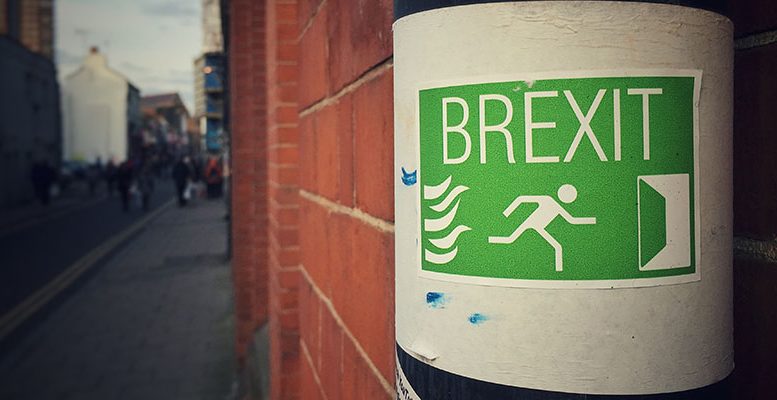There is no denying that the United Kingdom’s Brexit decision is a blow to the European Union (EU). Now, there is a real risk that the remaining 27 EU members will start pursuing national interests at the expense of the common EU interest. If they do, everyone will lose.
The 27 EU states need to act resolutely to strengthen EU-wide democracy, to ensure respect for EU rules, and to show that the EU can do business efficiently with the rest of the world.
The European Union is not a monolith. It is a voluntary union of 28 states, with no independent tax raising power. It operates on the basis of rules, which its 28 members must freely respect. If they fail to do so, the EU ceases to mean anything.
These rules are made under the authority of the EU’s treaties, which have been ratified by all member states, and the treaties can only be amended if all 28 states agree. The more members the EU has, the harder it becomes—by a form of geometric progression—for the EU to amend its treaties. A club that has no power to change it basic rules will eventually fossilize and die.
The 28 EU members are, in theory, sovereign equals, regardless of differences in population or wealth. But voting weights do recognize differences in size, on all issues where unanimity is not required.
The EU makes trade deals on behalf of its members, using the extra bargaining power that the union’s size gives it. But because it negotiates on behalf of 28 states, not just one, it can be harder for the EU to finalize a deal than it would be for one state negotiating alone.
In the case of some trade deals, it is sufficient for them to be ratified by the European Parliament alone. In others, all 28 national parliaments must ratify them too. In these cases, the EU has much more difficulty being an effective trade negotiator.
RESPECT FOR RULES
If one or more member states get into a habit of failing to respect EU rules or directives, the EU ceases to be operational, particularly if the states failing to respect the rules are the bigger ones.
In July, France threatened to flout an existing EU directive because efforts to amend it—in a direction that France wanted—were being blocked by the national parliaments of 11 EU states. In response, French Prime Minister Manuel Valls threatened not to implement the existing directive, which would completely undermine EU rulemaking.
Valls said: “If it is not possible to convince … France will not apply this directive.” That is a direct threat to the EU from a founding state. It is really dangerous.
COMPROMISES BETWEEN NATIONAL INTERESTS
Likewise, if it becomes too difficult for the EU to complete trade agreements because a few states within the EU hold up the agreement in order to advance national interests, then the EU’s utility as a trade negotiator fades away. This was an argument advanced by some of those who favored Brexit—namely that the UK could negotiate its own deals more easily outside the EU, without having to wait for 27 other countries to agree. That thesis will be put to the test soon.
The European Commission conceded, under pressure from national government facing early elections, that the trade deal with Canada must not only be ratified by the European Parliament and the 28 governments, but by the 28 national parliaments as well. This is a risky decision.
If the EU’s deal with Canada collapsed because one or two national parliaments failed to ratify it, years of work by Canadian and EU negotiators would go down the drain. Other countries would begin to doubt if negotiating with the EU is worth their time. The Brexit advocates would have won part of their argument.
But a lot more is at stake here than the content of the agreement with Canada.
TREATY CHANGE MUST BE POSSIBLE
It has become accepted wisdom in every EU capital that treaty change is off the agenda. This is because of: the requirement to have a referendum in Ireland on a treaty change involving a transfer of sovereignty; the voluntary decisions of France and the Netherlands to have referenda on certain EU matters—in the Netherlands’ case, even on a minor agreement with Ukraine; and the expectation that a treaty change would be preceded by a cumbersome convention.
The net result of this is that the EU will not consider treaty changes, even ones that might make it more democratic. If that remains the case, the EU will eventually freeze up because it will not be able to respond to new circumstances, and its member states will have to look to other, less democratic or transparent institutions than the EU to advance their collective interests. One could even see the North Atlantic Treaty Organization (NATO) being called into service for more broadly defined “security” purposes.
Some may argue that treaty change in general is not urgent. Indeed, there is no need for a comprehensive review of the treaties so soon after the Lisbon Treaty came into force. But a treaty change to respond to concerns that emerged in the UK referendum campaign—for example, changes to make the EU more visibly democratic and accountable—should be possible.
For example, treaty changes could be envisaged to:
1) Have the president of the European Commission be elected directly, in a two-round election, by the entire electorate of the EU. Have the president of the euro group be similarly elected by the eurozone countries.
2) Give national parliaments of the EU—if a minimum number agree—the power to require the commission to put forward, for consideration, a legislative proposal within the EU competence in the treaties.
3) National parliaments already can delay EU legislation, so why not allow them make a positive proposal?
This article was originally published on Fair Observer





